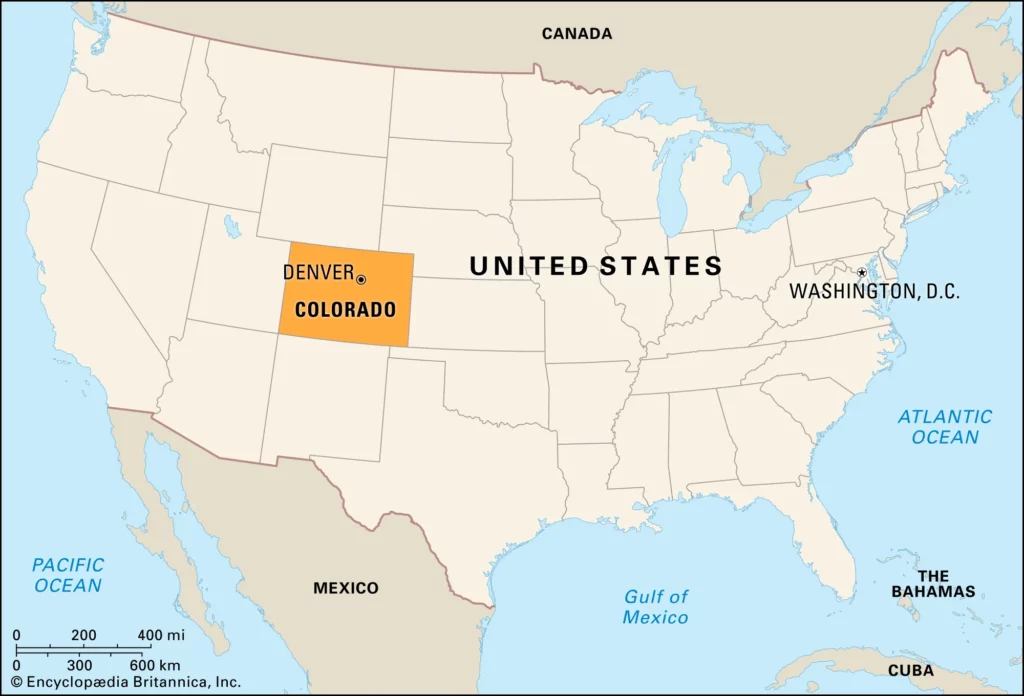
What is a Registered Agent in Colorado?
In Colorado, a Registered Agent serves as the legally designated individual or entity responsible for receiving important legal documents on behalf of a business. This role is crucial for ensuring that the business maintains compliance with state legal requirements. The Registered Agent acts as the primary point of contact with the state, handling documents such as service of process, legal notifications, and correspondence from the Colorado Secretary of State.
Key aspects of a Registered Agent in Colorado include:
Eligibility: A Registered Agent can be either an individual resident of Colorado or a business entity authorized to conduct business in Colorado. They must have a physical address within the state (not a P.O. Box).
Availability: The Registered Agent must be available at the registered address during normal business hours to receive legal documents in person.
Public Record: The name and address of the Registered Agent are part of the public record, ensuring transparency and accessibility for legal processes.
Compliance Role: By ensuring timely receipt and handling of important documents, the Registered Agent plays a key role in helping the business maintain its legal standing and compliance with state regulations.
Changing a Registered Agent: Businesses have the flexibility to change their Registered Agent as needed, but must file the appropriate forms with the Colorado Secretary of State to update their records.
Having a reliable Registered Agent is a legal requirement for registered business entities in Colorado, underlining the importance of this role in the smooth operation and legal compliance of the business.
How can I determine if my Colorado business needs a Registered Agent?
In Colorado, the need for a Registered Agent depends on the type of business entity and various other factors. Here are some points to help you determine if your Colorado business needs a Registered Agent:
Formal Business Entity: If your business is registered as a corporation, limited liability company (LLC), limited partnership (LP), limited liability partnership (LLP), or any other formal business entity with the Colorado Secretary of State, you are required to have a Registered Agent.
Operating in Colorado: If your business is formed in another state but conducts business operations in Colorado as a foreign entity, you must designate a Registered Agent in Colorado. This ensures that the business can be legally contacted and served with process within the state.
Legal Compliance: Having a Registered Agent is a legal requirement to ensure that there is a reliable means for the state to communicate with and serve legal documents to your business. This includes receiving notifications, tax documents, and legal notices.
Physical Address Requirement: A Colorado Registered Agent must have a physical street address within the state. A P.O. Box address is not sufficient to meet the requirement.
Constant Availability: Your Registered Agent must be available during normal business hours to receive important documents and communications on behalf of your business.
If your business falls under any of these categories or meets the criteria mentioned above, it is mandatory to have a Registered Agent in Colorado. A Registered Agent ensures that your business remains in compliance with state regulations and is accessible for legal notices and correspondence.
It is recommended that you consult with a legal professional or the Colorado Secretary of State’s office to determine the specific requirements for your business and ensure compliance with the Registered Agent obligation.
What does a Registered Agent do for a Colorado business?

A Registered Agent serves several crucial roles for a Colorado business, acting as an essential bridge between the business, the state, and others who may have legal business with the company. Their responsibilities include:
Legal Document Receipt: Accepting legal documents on behalf of the business is one of the primary roles of a Registered Agent. This includes service of process for lawsuits, ensuring that the business can respond accordingly to legal actions.
State Correspondence: They receive official state communications, such as compliance notices and tax documents. This role is critical to ensure that essential government correspondence reaches the business in a timely manner.
Maintaining Privacy: By having a Registered Agent, a business owner’s personal address can remain out of public records, offering an additional layer of privacy protection.
Compliance Reminders: Some Registered Agents go above and beyond by providing additional services such as compliance reminders. They may notify the business of upcoming filing deadlines and other compliance obligations to help the business maintain its good standing with the state.
Availability: A Registered Agent must be available at a physical address during normal business hours, ensuring that there is always someone present to receive important documents on behalf of the business.
These responsibilities underscore the importance of a Registered Agent in the daily operation and legal compliance of a Colorado business. Selecting a dependable and proficient Registered Agent is a critical business decision that can significantly impact the stability and legal standing of the company.
Are there any legal requirements specific to Colorado when selecting a Registered Agent for my business?
Yes, Colorado imposes specific legal requirements for selecting a Registered Agent for your business. Understanding and adhering to these requirements is essential for maintaining compliance with state laws and regulations. Here are the key legal requirements for selecting a Registered Agent in Colorado:
Physical Address: The Registered Agent must have a physical street address in Colorado, known as the registered office. This cannot be a P.O. Box. The purpose of this requirement is to facilitate the in-person delivery of legal documents.
Availability: The Registered Agent must be available at the registered office during normal business hours to receive legal documents and notices on behalf of the business. This availability ensures timely receipt and response to legal actions and state communications.
Eligibility: An individual serving as a Registered Agent must be a resident of Colorado. If the Registered Agent is a business entity, such as a Registered Agent service company, it must be authorized to do business in Colorado.
Consent to Serve: While not a formal document filed with the state, it is imperative that the selected Registered Agent consents to serve in this capacity. This consent helps prevent situations where an appointed agent is unaware of their duties or unwilling to fulfill them.
Ensuring your Registered Agent meets these legal requirements is crucial for the continuity and legal integrity of your business in Colorado. Compliance with these rules helps guarantee that your business can be reliably contacted for legal and official matters, maintaining its good standing within the state.
How often should a Colorado business update its Registered Agent information?

For Colorado businesses, there is no mandated frequency for updating Registered Agent information based on a schedule. Instead, the necessity to update Registered Agent information arises from specific circumstances. A Colorado business should update its Registered Agent information under the following conditions:
Change of Registered Agent: If you decide to change who serves as your Registered Agent, you must update your information with the Colorado Secretary of State immediately to ensure the state has current contact information.
Change of Address: If your Registered Agent moves to a new address or if the physical location of the business changes, the new address needs to be updated promptly to maintain effective legal communication.
Change in Availability: Should your Registered Agent’s availability change in a way that affects their ability to fulfill their responsibilities (e.g., no longer available during normal business hours), you need to update this information or designate a new Agent who can meet the requirements.
Legal or Business Name Change: If the name of your Registered Agent or your business changes, this change should be reflected in the state’s records to avoid any confusion or miscommunication in legal processes.
Updates to Registered Agent information can typically be made through the Colorado Secretary of State’s website, either through filing the appropriate document or, for certain changes, updating the business’s periodic report. It’s crucial for businesses to maintain current Registered Agent information with the state to ensure continuity, legal compliance, and the timely receipt of legal and official documents.
What is the easiest way to get a Registered Agent in Colorado?
Finding a reliable and compliant Registered Agent is essential for any business in Colorado. The easiest and most efficient way to secure a Registered Agent for your business in Colorado is through a professional service provider like FormPros. FormPros offers a comprehensive Registered Agent Service that not only meets Colorado’s legal requirements but also provides additional benefits for your business. Here’s why choosing FormPros for your Registered Agent needs is an excellent choice:
Reliable Compliance: FormPros ensures that your Registered Agent fulfills all the Colorado requirements, including having a physical address within the state and being available during normal business hours.
Privacy Protection: Using our Registered Agent Service helps protect your privacy by keeping your personal address off public records, replacing it with the Registered Agents’ professional address.
Timely Notifications: FormPros will notify you promptly of any legal documents or correspondence received, helping you stay on top of critical legal matters and deadlines.
Convenience and Peace of Mind: Managing compliance aspects with FormPros means you can focus more on running your business, knowing that the Registered Agent duties are handled professionally.
Easy Setup: FormPros offers user-friendly online services, making it simple to appoint or change your Registered Agent with minimum hassle.
With FormPros, you get more than just a Registered Agent; you secure a partner dedicated to ensuring your business meets its legal obligations while providing tools and services to help manage your compliance effectively. This can be especially valuable for new business owners or those looking to streamline their legal processes.
To learn more about our Registered Agent services and other business solutions, visit FormPros. Taking this step can provide your Colorado business with the support it needs to navigate legal requirements smoothly and efficiently.
How do I change a Registered Agent in Colorado?

Changing your Registered Agent in Colorado involves a straightforward process that can be completed online or by mail. Here’s a step-by-step guide to facilitate the change:
Decide on the New Registered Agent: Before making any changes, ensure that your new Registered Agent agrees to the appointment and meets all Colorado requirements, including having a physical address in the state and being available during business hours.
Online Filing: The easiest way to change your Registered Agent is by using the Colorado Secretary of State’s online services. Access the Statement of Change form on the Colorado Secretary of State’s website.
Log in or create an account on the Colorado Secretary of State’s website.
Navigate to the business section and select the option to file a “Statement of Change”.
Enter your business’s identification information and follow the prompts to enter your new Registered Agent’s details.
Review and submit your form along with any required filing fee.
Mail Filing: If you prefer to submit your change by mail, download and complete the Statement of Change Changing the Registered Agent Information form from the Colorado Secretary of State’s website.
Fill out the form with your business information and the new Registered Agent’s details.
Mail the completed form along with any necessary payment for the filing fee to the address provided on the form.
Confirm the Change: After submitting the form, either online or by mail, you will receive a confirmation from the Colorado Secretary of State. It’s important to ensure that this confirmation reflects the change accurately.
Remember, once you have successfully changed your Registered Agent in Colorado, notify your former Registered Agent of the change, so they are aware that they no longer have this responsibility for your business.
Changing your Registered Agent ensures that your business remains in good standing by maintaining compliance with state requirements. It’s a critical task that keeps your business accessible for important legal and state communications.
Can I be my own Registered Agent in Colorado?
Yes, in Colorado, you can serve as your own Registered Agent for your business. However, to do so, you must meet specific requirements set by the state. Here are the key considerations if you decide to become your own Registered Agent:
Physical Address: You must have a physical address in Colorado (not a P.O. Box) where you can receive legal documents and official correspondence in person.
Availability: You need to be available at the specified address during normal business hours to accept service of process and other important documents.
Compliance: As your own Registered Agent, you are responsible for ensuring that your business complies with all legal and state filing requirements, including annual reports and tax submissions.
Privacy: It’s important to note that the Registered Agent’s address is public record. By serving as your own Registered Agent, your address will be listed on the Colorado Secretary of State’s website, which might affect your privacy.
Serving as your own Registered Agent can be a cost-effective option, especially for small businesses that can reliably handle legal documents and maintain the required availability. However, before deciding, consider the responsibilities involved and whether you can meet them without compromising the needs of your business. For some business owners, using a professional Registered Agent service might offer more convenience and privacy, ensuring that all legal requirements are handled efficiently without the burden of personal availability.
Is it possible to appoint an out-of-state Registered Agent for your Colorado business?
In Colorado, your business is required to have a Registered Agent with a physical address within the state. This requirement ensures that there is a reliable point of contact available to receive legal documents and official notices during normal business hours. Therefore, directly appointing an out-of-state individual or entity as your Registered Agent without a physical presence in Colorado is not permissible under state law.
However, many national Registered Agent services operate in multiple states, including Colorado. If you are considering an out-of-state Registered Agent service, ensure they:
Have a physical office located in Colorado.
Are authorized to do business in Colorado.
Can receive legal documents and official correspondence on behalf of your business during normal business hours at their Colorado location.
Choosing a national Registered Agent service with operations in Colorado can offer the flexibility and convenience of working with a provider that operates in multiple states, while still complying with Colorado’s requirement for a physical in-state address. This can be particularly beneficial if your business operates in several states or plans to expand outside Colorado.
It’s crucial to verify that any Registered Agent, whether a local or national service, satisfies Colorado’s specific legal requirements to ensure your business remains in good standing and compliant with state regulations.
Are Registered Agents from Colorado responsible for any fees or taxes?

Registered Agents in Colorado primarily serve as the designated point of contact for receiving legal documents and official state communications on behalf of the businesses they represent. Their role does not directly involve the responsibility for paying fees or taxes that the business incurs. Here’s a breakdown of their responsibilities and financial obligations:
Business Fees and Taxes: The responsibility for paying any business-related fees, taxes, or filings with the state rests with the business itself, not the Registered Agent. This includes annual report fees, state income taxes, sales taxes, and any other financial obligations.
Registered Agent Service Fees: If a business opts for a professional Registered Agent service, the business will pay a service fee to the Registered Agent or Registered Agent service company. These fees are for the services rendered by the Registered Agent, such as receiving legal documents and maintaining availability during business hours. The fee structure and payment terms are generally outlined in the service agreement between the business and the Registered Agent service.
Personal Financial Liability: Being a Registered Agent does not confer personal financial liability for the business’s obligations onto the agent. Their role is administrative and does not involve financial management or responsibility for the business’s debts, including any fees or taxes owed to the state.
It’s important for businesses to stay informed about their state filing requirements, deadlines for submissions, and any applicable fees or taxes to maintain good standing. Registered Agents can help ensure that businesses receive the necessary legal and state communications promptly, but it is ultimately the business’s responsibility to act on these communications and fulfill any financial obligations.
Sign Up for a Registered Agent in Colorado Now
State Specific Registered Agent Service
- Alabama
- Alaska
- Arizona
- Arkansas
- California
- Colorado
- Connecticut
- Delaware
- Florida
- Georgia
- Hawaii
- Idaho
- Illinois
- Indiana
- Iowa
- Kansas
- Kentucky
- Louisiana
- Maine
- Maryland
- Massachusetts
- Michigan
- Minnesota
- Mississippi
- Missouri
- Montana
- Nebraska
- Nevada
- New Hampshire
- New Jersey
- New Mexico
- New York
- North Carolina
- North Dakota
- Ohio
- Oklahoma
- Oregon
- Pennsylvania
- Rhode Island
- South Carolina
- South Dakota
- Tennessee
- Texas
- Utah
- Vermont
- Virginia
- Washington
- West Virginia
- Wisconsin
- Wyoming
Colorado Registered Agent FAQs
-
Can a Colorado corporation act as its own Registered Agent?
No, a Colorado corporation cannot act as its own Registered Agent. A Registered Agent must be an individual resident of Colorado or a business entity authorized to do business in Colorado with a physical address in the state.
-
How do I verify who my business’s Registered Agent is in Colorado?
You can verify your business's Registered Agent by searching your business name on the Colorado Secretary of State’s website. The search results will include detailed information about your business, including the name and address of your Registered Agent.
-
Are there privacy concerns associated with being my own Registered Agent?
Yes, since the address of the Registered Agent becomes a matter of public record, using your personal address may impact your privacy. Many business owners choose a professional Registered Agent service to avoid this.
-
Can the same Registered Agent represent multiple businesses in Colorado?
Yes, there is no limit to the number of businesses a single Registered Agent can represent in Colorado, as long as the agent meets all statutory requirements for the role.
-
What happens if my Registered Agent moves to a new address?
If your Registered Agent changes their address, you must file a Statement of Change with the Colorado Secretary of State to update the address. Failing to do so could lead to missed important documents and potential non-compliance issues.
-
Is there a penalty for not having a Registered Agent in Colorado?
Yes, failing to maintain a Registered Agent can result in your business being out of compliance with Colorado state laws, which can lead to administrative dissolution or revocation of your business's authority to operate within the state.
-
How quickly should I update Registered Agent information if it changes?
You should update your Registered Agent information as soon as possible to ensure your business remains in good standing and avoids missing critical legal or state communications.
-
Can an attorney serve as a Registered Agent in Colorado?
Yes, provided they meet Colorado’s requirements, including having a physical address within the state and being available during normal business hours, an attorney can act as a Registered Agent.
-
Does a Registered Agent in Colorado have to sign any form to accept the appointment?
While Colorado does not specifically require the Registered Agent to sign a form accepting the appointment, the business should have consent from the agent to ensure they are willing and aware of their responsibilities.
-
How much does it typically cost to hire a professional Registered Agent in Colorado?
The cost of hiring a professional Registered Agent in Colorado varies by provider but typically ranges from $50 to $300 per year. Pricing can depend on additional services offered by the Registered Agent, such as compliance assistance.
-
Can a non-profit organization in Colorado serve as its own Registered Agent?
No, akin to corporations, a non-profit organization cannot serve as its own Registered Agent. An individual or legally authorized entity must fulfill this role.
-
What are the steps to resign as a Registered Agent in Colorado?
To resign, a Registered Agent must file a Statement of Resignation with the Colorado Secretary of State. Upon filing, they must also notify the business for which they were serving as the agent.
-
Can a P.O. Box be used as the address for a Registered Agent in Colorado?
No, a P.O. Box is not acceptable. The Registered Agent must provide a physical address in Colorado where they can be personally reached during business hours.
-
Will I be notified by the Colorado Secretary of State if my Registered Agent resigns?
Yes, the business will be notified by the Colorado Secretary of State if the Registered Agent files a resignation. It's then imperative to appoint a new Registered Agent promptly to maintain compliance.
-
How do I file the change of Registered Agent form in Colorado?
The change of Registered Agent can be filed online through the Colorado Secretary of State's website or by mailing the completed form. Both methods require the completion of the Statement of Change form, accompanied by any necessary filing fees.
 Rated 4.8 from 14,000+ Happy Customers
Rated 4.8 from 14,000+ Happy Customers

